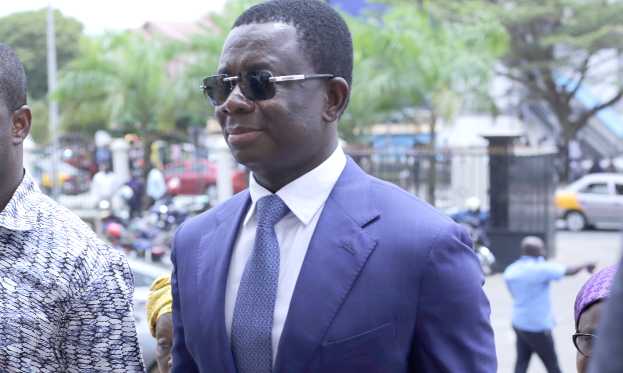Published
1 week agoon
By
Diella Teku
On Tuesday, November 12, 2024, the Supreme Court will issue a landmark ruling on Speaker of Parliament Alban Bagbin’s contentious decision to declare four parliamentary seats vacant, a move that has raised constitutional questions and sparked significant political debate.
The case, brought forward by Alexander Afenyo-Markin, leader of the New Patriotic Party (NPP) parliamentary caucus, challenges Speaker Bagbin’s authority to unilaterally declare seats vacant without judicial intervention or the initiation of by-elections. Afenyo-Markin contends that the Speaker’s decision violates the Constitution, as he argues that only the judiciary has the right to interpret the Constitution in such matters. He claims that the Speaker’s actions bypass due process and undermine the democratic representation of the constituencies affected.
Complicating matters further, Speaker Bagbin’s legal representation by attorney Thaddeus Sory faced scrutiny. On Monday, November 11, Sory did not appear in court, nor was the Speaker’s statement of case filed. At a prior hearing, the Attorney-General had raised concerns over the legality of Sory’s continued representation, citing the lack of approval from the Public Procurement Authority as a procedural issue.
At the heart of the legal dispute is the interpretation of the 1992 Constitution concerning parliamentary vacancies. Speaker Bagbin asserted that four MPs had failed to meet specific constitutional requirements, thus justifying their removal from office. He maintains that his actions were within his authority as Speaker to uphold parliamentary integrity. When Afenyo-Markin contested this decision, the Supreme Court initially issued an injunction, pausing any further action on the vacated seats. Bagbin subsequently filed a motion to reverse this injunction, arguing that it hindered his responsibilities as Speaker. However, the court dismissed his motion, reaffirming the injunction and setting the stage for the final judgment.
The upcoming decision has wide-reaching implications, not only for the four affected constituencies but also for the delineation of power between the Speaker of Parliament and the judiciary. The ruling could redefine the scope of the Speaker’s authority in parliamentary matters and clarify judicial oversight in constitutional interpretations involving parliamentary procedures. As the nation awaits the verdict, the case underscores the complex balance of power in Ghana’s democratic governance system.


Supreme Court to Rule on Anti-LGBTQI+ Bill Challenge, Case Delays Attributed to Parties’ Inaction


Supreme Court Curbs Speaker Bagbin’s Power, Protecting Constituents’ Right to Representation


Supreme Court Set to Rule on Speaker’s Authority Over Parliamentary Vacancies in High-Stakes Case


Supreme Court Resumes Hearing on Anti – LGBTQ+ Bill


E-Levy will go even if we don’t get justice from Supreme Court – Ablakwa hails Mahama.

SC ruling on Opuni’s case a travesty of justice”- NDC


Supreme Court orders New Judge to take over Kennedy Agyapong’s contempt Case


Kennedy Agyapong’s fate to be decided by Supreme Court today


Ken Agyapong runs to Supreme Court to escape jail

























